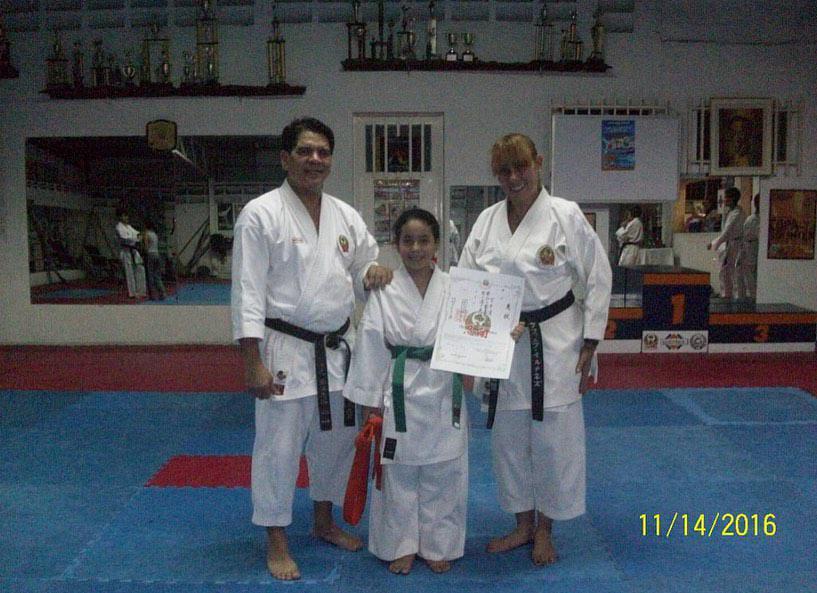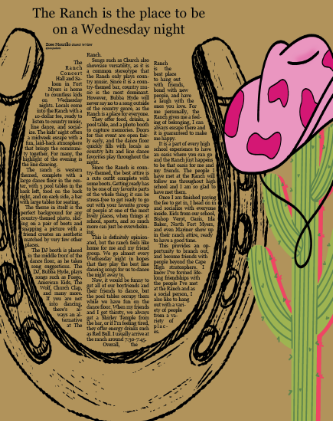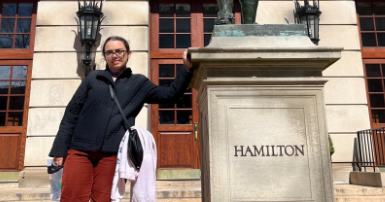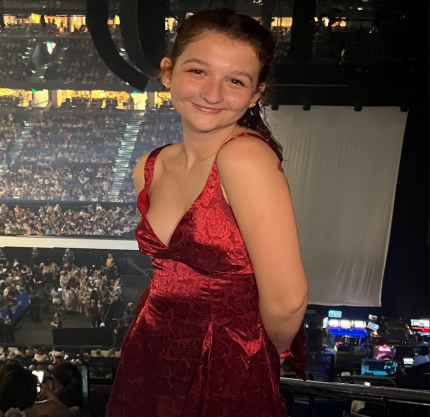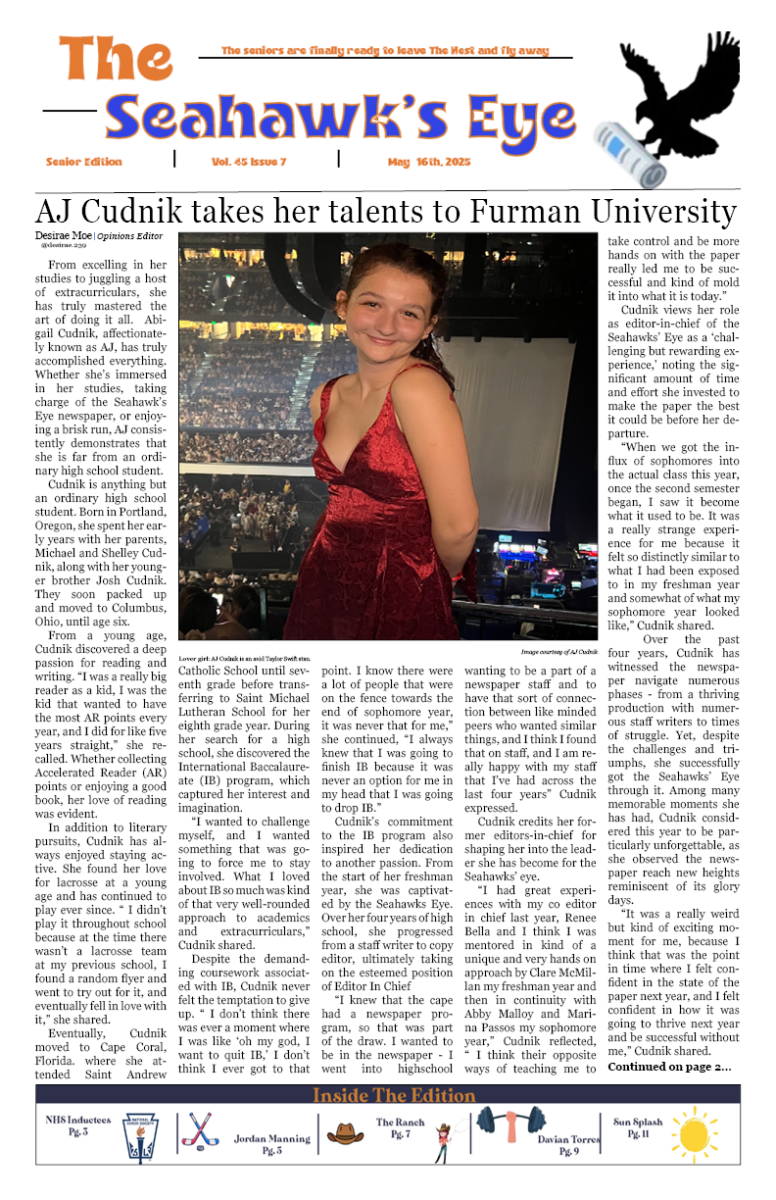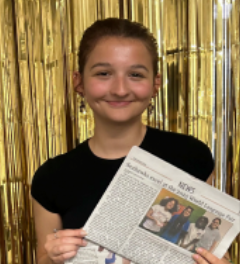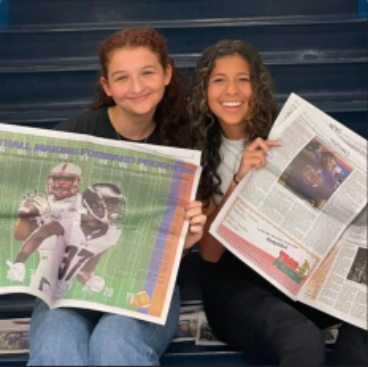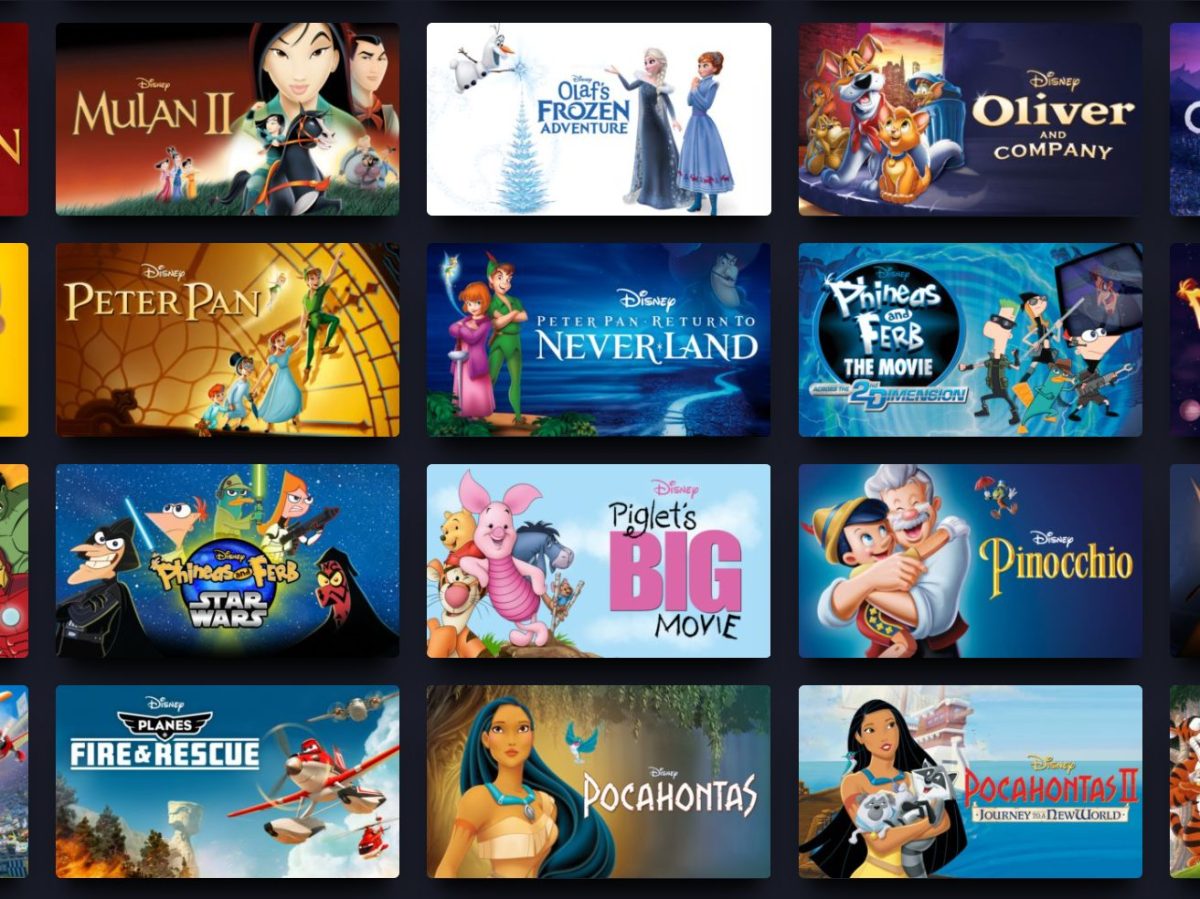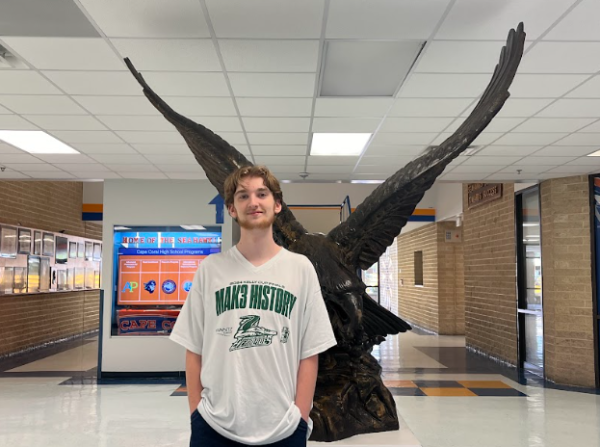Migrating to a different country is always a hard experience. At Cape Coral High, many students originate from places outside of the United States; one of these students is IB junior Oriana Beber.
Beber, originally from Venezuela, migrated to the United States when she was just nine years old. Her opportunity was revealed when a family friend offered her father a job in the states.
“One of my dad’s friends here was like ‘Hey, I’ll give you a hand, you can come here and work for me, and then you can bring your wife and child and live here,’ so we did,” said Beber.
According to Beber, Venezuela was not a good environment to live in; she was rarely allowed to even leave her home. “I didn’t really go out much because it’s like, the crime rate in Venezuela is very high,” Beber stated. “So I wasn’t really allowed beyond the front gate of my house, and if I did go out, it was with one of my parents, I was never alone.”
When Beber moved to Florida, she was instantly met with the problem of not knowing how to speak English. “I just knew the numbers from one to 10 because they [her school] taught us,” Beber said.
“They tried getting an english teacher in the school but it never worked out, it wasn’t like sufficient funds for the school and stuff. Just the school and the new languages which really I struggled a lot with the languages. It wasn’t until like sixth grade I got over that.”
Beber’s mother, Francis Beber, noted that even though her daughter struggled to learn English, she still managed to carry through and stay strong. “At first she was very scared and confused, especially when it came to speaking English but with the help of a tutor at school, she learned English,” said Francis.
“She was a daring girl and always fought for whatever she wanted and whenever she set a goal, she got it, and she managed to adapt perfectly to her new home.”
Even though learning English gave Beber a hard time, the thought of seeing her father again motivated her to be excited about this opportunity. “I was excited because I had spent like six months without my father because he came here [Florida] for a few months to get stabilized and all that,” said Beber.
“I was like, super excited also because it was just three days after my birthday at the time. So I was like, ‘Oh my god, I’m gonna get to see my dad again, after six months.’”
Close friend of Beber and fellow immigrant, senior Marta Teygid, explained that migration is an extremely difficult process but benefits you in the long run. “I mean it’s always hard, it’s changing your whole life,” said Teygid. “I think it affected her the way you’d think, in a detrimental way emotionally speaking, but safety and economically wise she benefited. The US provided her with safety that she didn’t have, and with various educational opportunities that she wouldn’t have gotten if she hadn’t migrated.”
Francis also believed migrating to the United States was one of the best things to have ever happened to Beber. “I believe it affected her positively because here she has the opportunities, in Venezuela she wouldn’t have aside from safety and security,” Francis explained. “She can study and get many opportunities to progress, unlike in Venezuela.”
In her first months in America, Beber and her family had a hard time getting settled down in their new life, which put them in many uncomfortable situations. “Probably the main difficulty was getting situated in the house because we didn’t have any furniture or anything, like we spent a lot of the first few months just sleeping on the carpet of the rooms,” Beber said.
Beber explained that she had to leave a lot of her extended family behind when she moved, stating, “I have a few uncles, and aunts and my grandma [still in Venezuela], I lost communication with a lot of my family members, like we’ll still text each ‘Happy Birthday’ or ‘Hey, how you doing?’ but that’s it, because we’re all in our own thing,” explained Beber.
While leaving behind family might have been a hard process for Beber, she managed to make friends with the neighborhood kids, who luckily knew her primary language of Spanish. “There were some girls that live in the houses around mine and I met one of them,” said Beber.
“She was from Argentina and she started talking to me in Spanish and so we became friends; she introduced me to her friends and created a little circle there in the neighborhood.”
Francis was thankful to see other kids just like Beber come together to teach her daughter everything she needed to know. “She made very good friends that she still has, with the luck that they spoke English and Spanish and they helped her in this process of adaptation and understanding,” said Francis.
“It has made her more open minded, independent, mature, and confident because she is more exposed to people from different backgrounds and can see more different views. We found a great place with amazing people that have helped us in the process of going forward.”
As Beber learned more about American culture, she realized how different it was from Venezuelan culture. “There’s a lot more privacy in the [American] culture,” explained Beber.
“It’s more of, from what I remember when I was younger, everyones knows what’s going on in your life. Here, everyone’s on their own, everyone’s minding their own business. They’re not trying to find out what’s going on in your life and such.”
Another thing she noticed was that in America, education was more relaxed and student-focused when compared to education in Venezuela. “The biggest difference is education wise, it’s a lot stricter with students, and such and here [America] it’s a lot more laid back like, they [the schools] let you get away with a lot more things than that in Venezuela that would just not pass. Sometimes it’s more like the school deals with more personal problems for the students then in Venezuela, the school is more involved with a child’s personal life here [America].”
As a Spain native, Teygid learned a lot about Venezuelan culture from Beber. “There’s also a huge difference between our culinary traditions,” Teygid explained. “Well in Venezuela, I feel like the main “side dish” is rice while in Spain we don’t really eat that much rice on a day to day basis, and in Venezuela they eat much more meat like pork and beef and in Spain, we eat more fish since we do take the Mediterranean diet.”
Beber also noticed a major difference between her and American culture, the politeness. “When we have guests come over, like friends, it’s usually, the kids will come in and they just completely ignore my parents’ existence,” said Beber. “In Venezuela it’s like ‘Hello miss and mister blank,’ it’s a lot more polite.”
Even if American culture might not be as polite as it is in Venezuela, Beber still managed to find outstanding people to surround herself with. “Most of my friends are also from different places, not necessarily Hispanic, they’re also Europeans and such like that and it makes me feel like ‘Hey, I’m not the only one that’s from some other place,’” Beber explained.
At the end of the day, Beber is living one of the best lives she possibly could. She is surrounded by loving people and given many opportunities to succeed in life.
One thing that migrating didn’t change about Beber, was her beautiful personality. “She’s funny, easygoing and beautifully kind,” said Teygid.
“I’ve never seen her be genuinely mean or rude to a person, she’s always been resourceful and willing to help anyone who asks her. The way she can make anyone laugh at any point in time, and her ability to ration with anyone, no matter who, and no matter what, it’s so sweet. Everyone should know that she’s literally the nicest person ever and that she’s a friend you can rely on.”


